For over a thousand years, pilgrims have made their way across Europe to Santiago de Compostela, each one carrying their own questions, their own burdens, their own hopes. As Johann Wolfgang von Goethe once observed, “Europe was made by pilgrimages to Santiago de Compostela.” But what is it about this ancient path that continues to call to us, generation after generation?
The Teaching Path
Carolyn Gillespie offers a simple but profound truth: “The path is the teacher.” There’s something remarkable about this idea. We’re so accustomed to seeking wisdom in books, in experts, in the voices of others. But the Camino suggests that sometimes the greatest teacher is simply the act of moving forward, step by step, day after day. The path doesn’t lecture. It doesn’t overwhelm you with information. It simply invites you to walk, to breathe, to notice, to be present.
Paulo Coelho takes this idea further, reminding us that “life always teaches us more than the road to Santiago does, but we don’t have much faith in what life teaches us.” How true this is. We’re willing to travel across the world, to blister our feet and ache our muscles, seeking wisdom on an ancient pilgrimage route. Yet somehow we overlook the lessons that life offers us daily in our own homes, our own neighborhoods, our own hearts. Perhaps the Camino’s greatest gift is teaching us to pay attention—not just on the path, but everywhere we go.
António Machado captured this beautifully in his famous verse: “Caminante, no hay camino, se hace camino al andar”—Walker, there is no path, the path is made by walking. These words resonate so deeply because they speak to a fundamental truth about life itself. We cannot wait for the perfect moment, the clear answer, the certain path. We must simply begin, trusting that the way will reveal itself as we go.
Walking With an Wide Open Heart
When preparing for the Camino, many pilgrims ask: What will I find? What answers will I get? What will change? Jane V. Blanchard offers perhaps the wisest counsel for anyone considering this journey: “Don’t come to the Camino looking for answers. Instead, come with an open heart and you may be surprised by what you find.”
This invitation to openness is at the heart of the pilgrim experience. When we come seeking specific answers, we often miss the gifts we weren’t expecting. But when we come with open hearts, ready to receive whatever the journey offers, transformation becomes possible. The Camino has a way of giving us what we need rather than what we think we want.
Kevin A. Codd speaks to this mystery when he writes about the pilgrim spirit: “To feel the pull, the draw, the interior attraction, and to want to follow it, even if it has no name still, that is the pilgrim spirit. The ‘why’ only becomes clear as time passes, only long after the walking is over.” How many of us have felt that wordless pull toward something we can’t quite name? That sense that we need to go, to walk, to seek, even when we can’t articulate exactly what we’re seeking? This is the beginning of pilgrimage—following that inner call with trust rather than certainty.
A Metaphor for Life
Hape Kerkeling describes the Camino as “a metaphor for life: You start out not knowing what to expect, you take it step by step, and you trust the path ahead.” In these words, we find a mirror of our own experience. Life, like the Camino, rarely gives us the complete map at the beginning. We set out with hopes and plans, but the actual journey unfolds in ways we could never have predicted. We learn to take it day by day, kilometer by kilometer, trusting that each step forward is enough.
Shirley MacLaine echoes this sentiment simply: “Walking the Camino is a metaphor for life itself.” On the path, we experience everything life offers—beauty and pain, connection and solitude, joy and struggle, doubt and faith. We wake before dawn and walk into uncertainty. We meet strangers who become friends. We discover strengths we didn’t know we had. We face our limitations with humility. We keep going even when we’re tired, even when we’re not sure why we’re doing this, even when every part of us wants to stop.
And through it all, as John Brierley reminds us, “The Camino leaves its mark on everyone who walks it.” This mark is different for each pilgrim, but it’s always there—a subtle shift in perspective, a deeper appreciation for simplicity, a renewed sense of what truly matters.
Learning to Keep Going
One of the most practical and profound lessons of the Camino comes from Tristina Oppliger: “The Camino taught me to keep going, to keep moving forward when life gets hard—even if it’s one step at a time.” This is no small thing. In our daily lives, we often wait until we feel ready, until conditions are perfect, until we have the energy or motivation. But the Camino teaches us that sometimes we simply need to put one foot in front of the other, even when it’s hard, even when we’re tired, even when the path ahead seems impossibly long.
There’s a beautiful resilience that develops on the Camino. You wake up with sore feet and aching shoulders, and you walk anyway. You face a mountain that seems too steep, and you climb it anyway. You get lost, and you find your way back. You reach your limit, and then you discover you can go a little further. These lessons of endurance and perseverance don’t stay on the Camino—they come home with us, strengthening us for whatever challenges we face in ordinary life.
Releasing What We Hold Too Tightly
Christine Valters Paintner offers another profound insight: “Pilgrimage invites us to notice what we are holding too tightly to, so we might release ourselves into the current of life.” There’s something about carrying everything you need on your back for weeks that teaches you about the weight of what we carry—both literally and metaphorically.
On the Camino, pilgrims quickly learn to distinguish between what they truly need and what they’ve been carrying out of habit or fear. That extra pair of shoes gets sent home. Those “just in case” items are left behind. And as the backpack gets lighter, something inside us often lightens too. We begin to question: What else have I been carrying that I no longer need? What worries, what grudges, what expectations could I release? What would it feel like to travel lighter through life?
The Transformation, Not the Destination
Richard R. Niebuhr cuts to the heart of pilgrimage with these words: “Pilgrimage is not about the road; it is about the transformation.” Yes, the Camino Frances is beautiful. Yes, Santiago de Compostela is a magnificent destination. Yes, receiving your Compostela certificate is meaningful. But these external markers are not the point. The point is who you become in the process of getting there.
Jane V. Blanchard expresses this beautifully: “Use the guides and the maps to lead you to Santiago; use the lessons learned on the camino to find your way.” The maps get you to the cathedral. But the lessons—about perseverance, about community, about simplicity, about faith, about yourself—these guide you through the rest of your life.
And then comes Paulo Coelho’s beautiful paradox: “Santiago is not the end of the Camino, but the beginning.” After all those kilometers, after all that effort, you arrive at the cathedral, and you realise that this is where the real journey starts. The Camino was preparation, training, awakening. Now comes the harder part: taking what you’ve learned and living it in your everyday life back home.
Walking in Faith
Throughout history, pilgrimage has been a spiritual practice, a physical expression of faith and seeking. The Book of Proverbs offers this assurance: “In all your ways acknowledge Him, and He shall direct your paths.” There’s deep comfort in this promise—that when we walk with awareness, with intention, with openness to something larger than ourselves, we are guided.
Sir Walter Ralegh, in his beautiful poem “The Passionate Man’s Pilgrimage,” prayed for “my scallop shell of quiet, my staff of faith to walk upon, my scrip of joy, immortal diet, my bottle of salvation, my gown of glory, hope’s true gage.” These metaphors speak to the inner resources we need for any pilgrimage: quiet, faith, joy, hope. Whether we’re walking across Spain or simply walking through our daily lives, these are the provisions that sustain us.
The Unexpected Gift of Community
One of the most beautiful surprises of the Camino often comes in the form of other pilgrims. Helen Burns captures this perfectly: “I had no idea when starting off on my lone pilgrimage how many dear friends I would make.” You set out alone, perhaps seeking solitude or self-discovery, and somehow you find yourself walking alongside others who are on their own journeys. You share meals, stories, struggles, and laughter. You help each other over difficult terrain. You celebrate each other’s victories.
The Camino community is unlike any other. There’s a vulnerability, an authenticity, that develops when you’re all carrying your lives on your backs, walking toward the same destination, sharing the same challenges. Strangers become friends quickly because the usual walls we maintain in daily life seem unnecessary here. Everyone is tired, everyone is searching, everyone is trying to keep going. In this shared vulnerability, real connection becomes possible.
Starting Again
So what does the Camino actually teach us? It teaches us that we are stronger than we think. That we need less than we imagine. That beauty exists in simple things—a cold glass of water, a kind word from a stranger, a sunrise over a wheat field. That community forms when we’re open to it. That we can keep going even when we’re tired. That transformation happens not in grand moments but in the accumulation of small steps. That faith is simply continuing to walk, even when you can’t see around the next bend.
The path is still there, ancient and patient, waiting for the next wave of seekers and wanderers and questioners. And perhaps that’s the final lesson: the Camino doesn’t demand perfection or certainty or even understanding. It simply invites us to walk, to remain open, to trust the journey.
As you consider your own path—whether it leads to Santiago de Compostela or simply through the landscape of your daily life—may you walk with courage and curiosity. May you remain open to the lessons that come. May you discover strengths you didn’t know you possessed. May you lighten your load and open your heart. May you find community in unexpected places. And may you remember that every journey, every step, is both an ending and a beginning.
Walking the Camino in Southwest France
Perhaps you’ve felt that quiet pull, that wordless invitation to walk, to seek, to open yourself to transformation. You don’t need to walk 800 kilometers to experience the wisdom of the Camino. Sometimes, a week is enough—enough to step away from the noise of daily life, enough to discover what emerges when you walk with intention, enough to taste the pilgrim spirit and see what it awakens in you.
I invite you to join me for one of my 7-day Camino de Santiago walking retreats in the beautiful countryside of southwest France. You’ll walk a section of this ancient path, carrying a light pack through landscapes that have welcomed pilgrims for centuries. You’ll move at a gentle pace that allows for reflection and conversation, for silence and community. Each evening, we’ll gather to share our experiences, to rest, and to prepare our hearts for the next day’s journey. This is pilgrimage in its most accessible form—a week to step out of your ordinary routine and into something that might just change the way you see everything.
You don’t need to be an experienced hiker. You don’t need to have all the answers about why you want to come. You simply need to feel that pull, that curiosity, that sense that perhaps it’s time to walk toward something. If these words resonate with you, if you’ve been waiting for an invitation to begin your own Camino journey, consider this it.
Buen Camino! May your blisters be few and your insights be many.
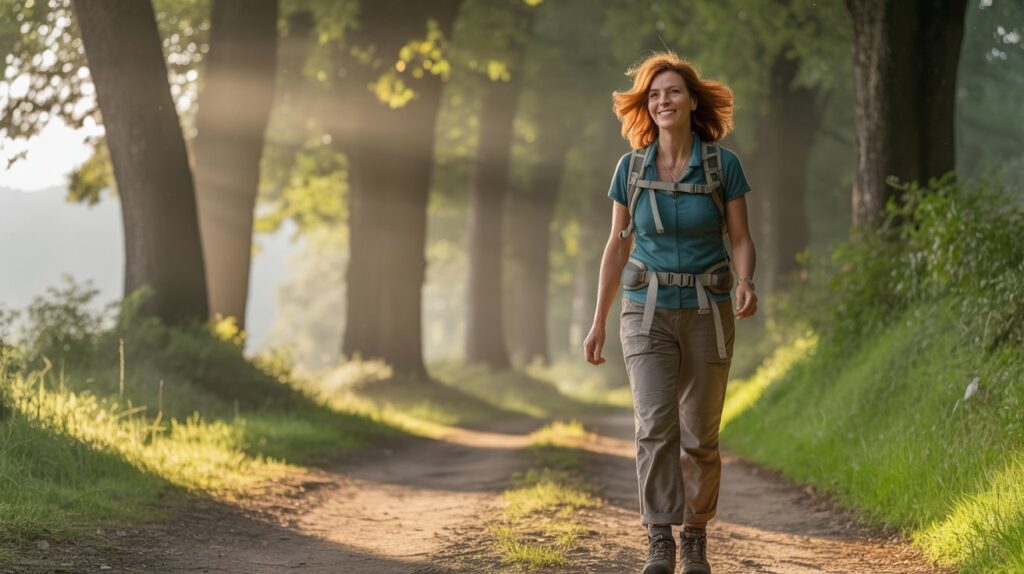
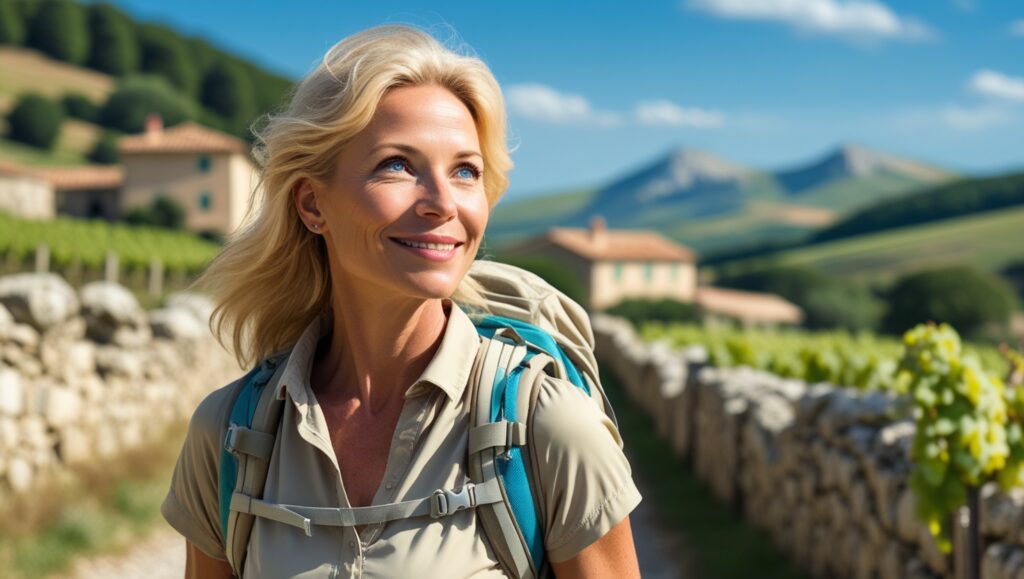
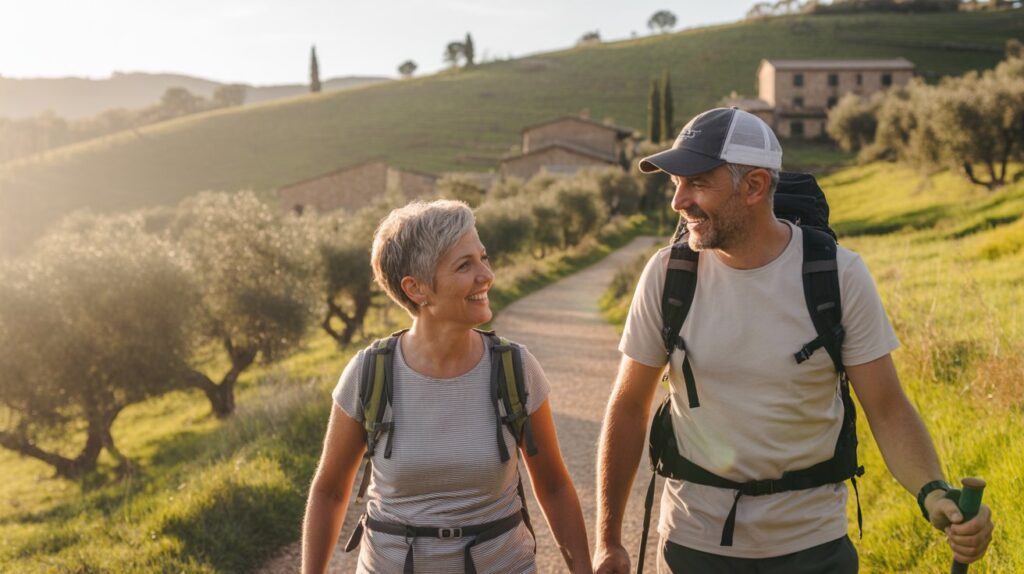
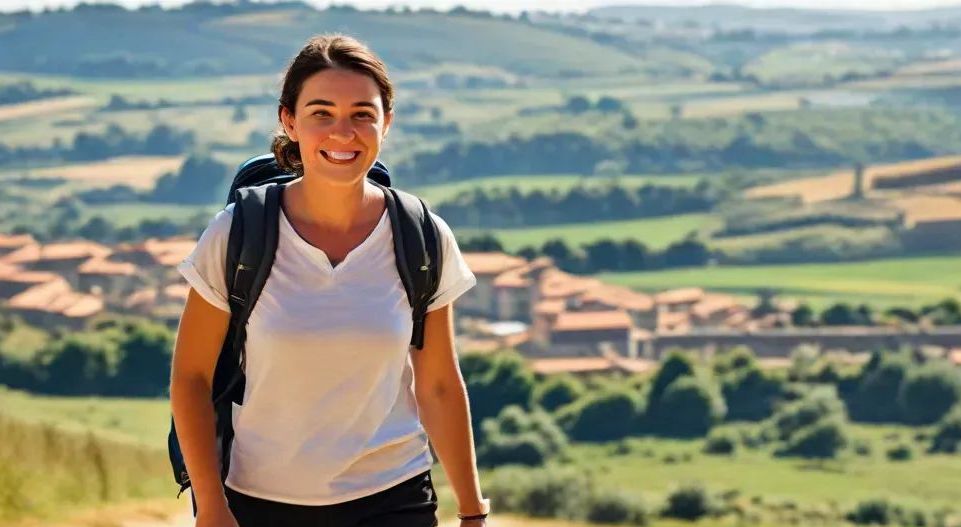
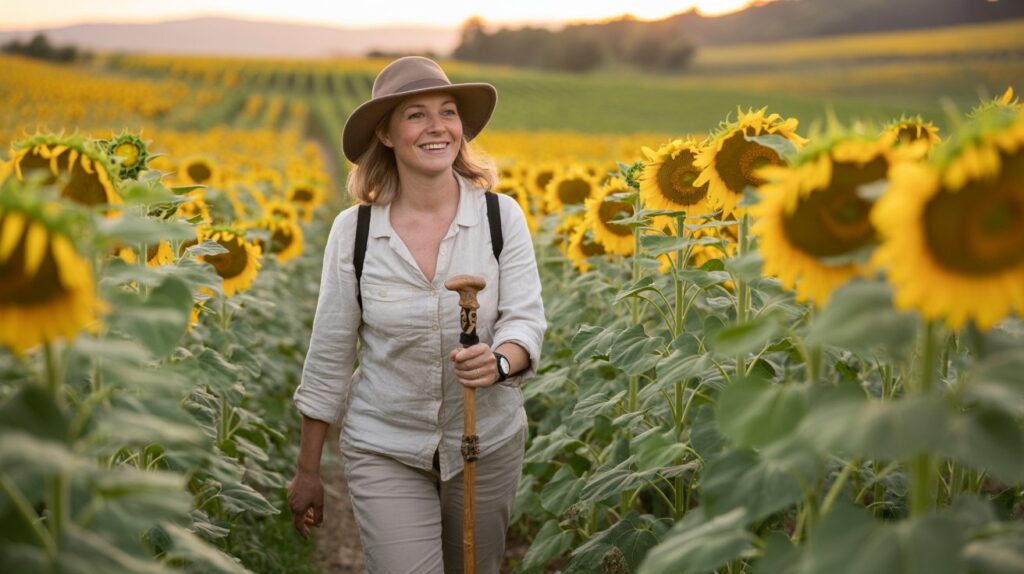

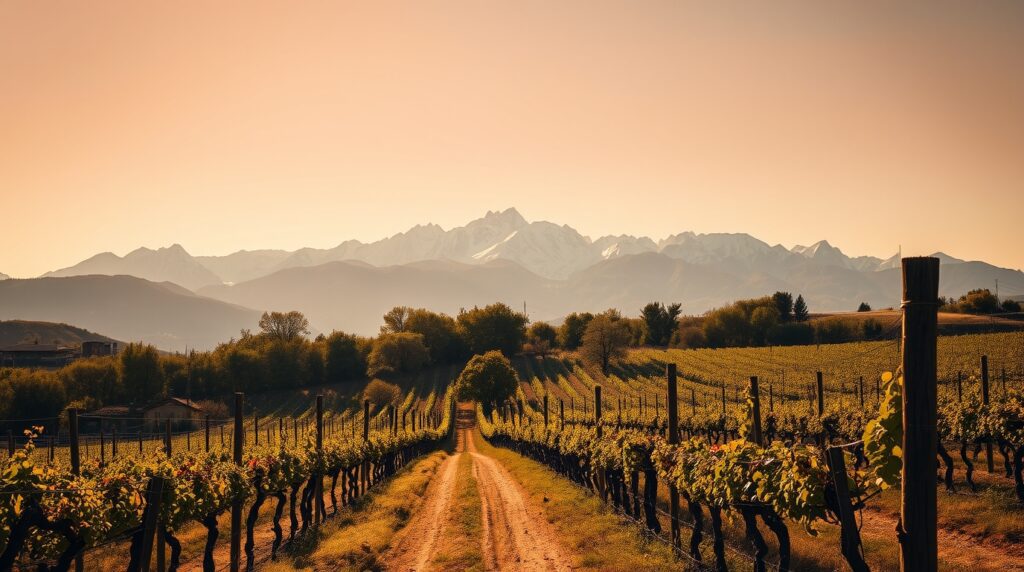
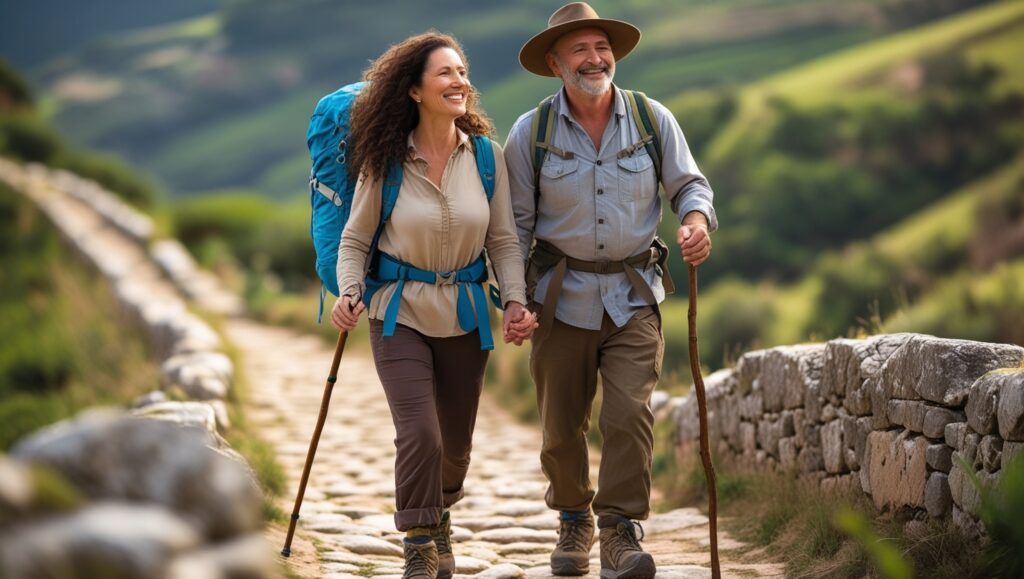
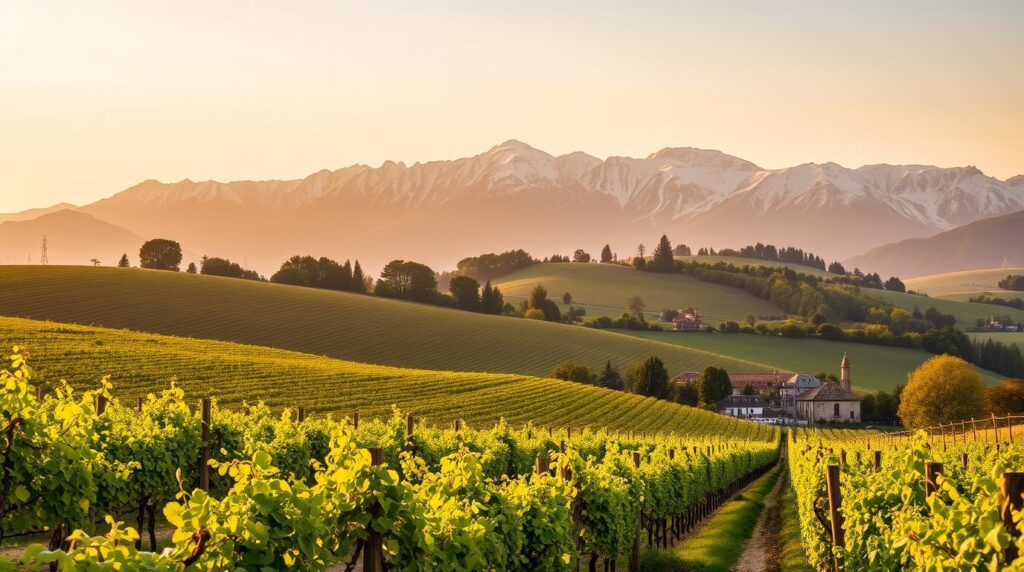
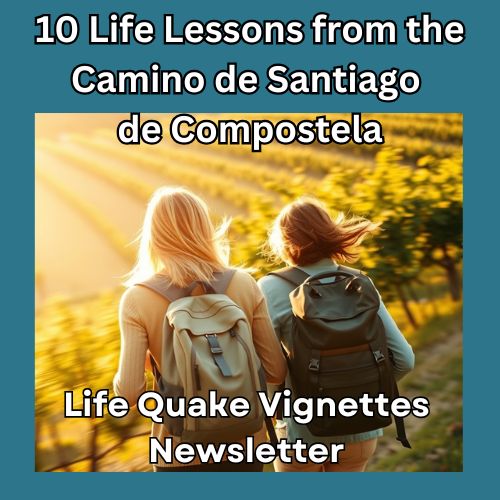
10 Powerful Life Lessons Learned While Walking the Camino de Santiago – a free guide filled with 10 not just “quaint anecdotes” or Instagram-worthy moments (though there are plenty of those) but real transformations from real people who walked the same insight-giving trail you might want to walk one day – Subscribe to my monthly newsletter to Download the Guide
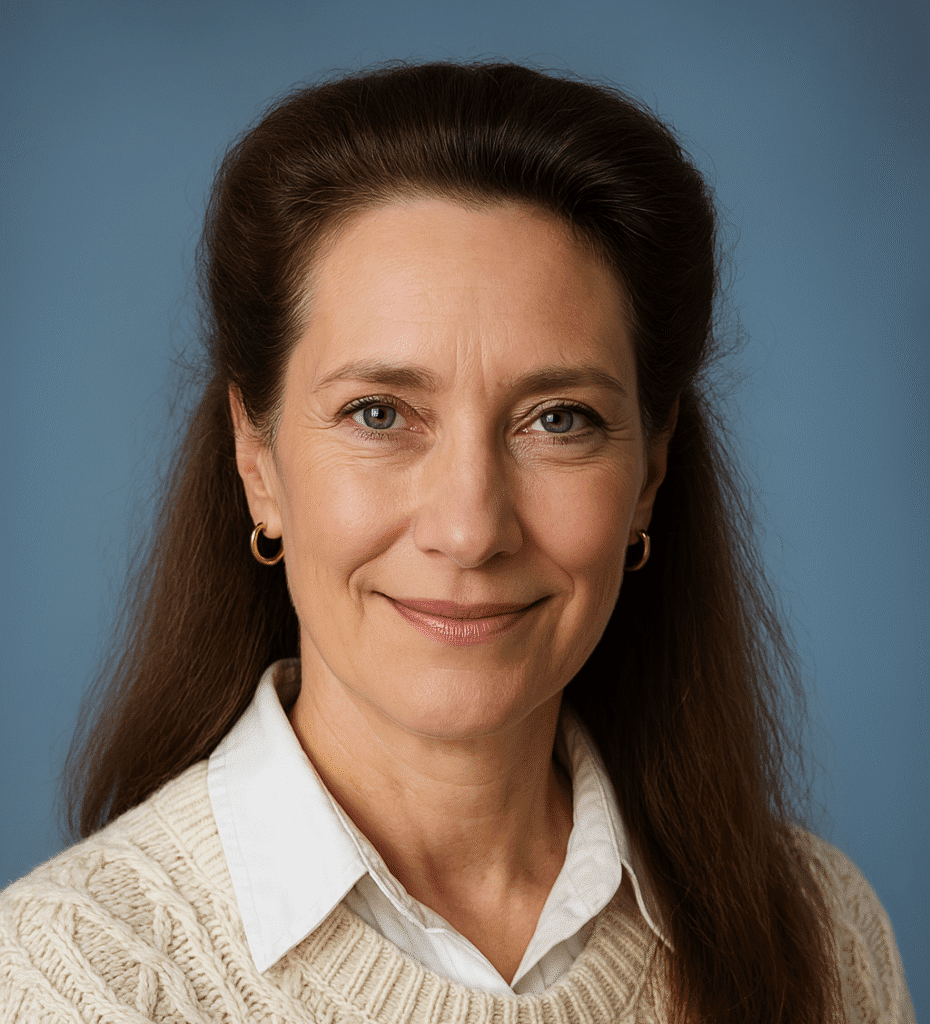
Author Bio: Dr Margaretha Montagu – described as a “game changer”, “gifted healer”, “guiding light” and “life-enriching author” – is an experienced medical doctor, a certified NLP practitioner, a medical hypnotherapist, an equine-assisted psychotherapist (EAGALAcertified) and a transformational retreat leader who guides her clients through life transitions – virtually, or with the assistance of her Friesian and Falabella horses, at their home in the southwest of France.
The Original Camino de Santiago Quotes:
“The path is the teacher.” Carolyn Gillespie, Pilgrim
“‘Life always teaches us more than the road to Santiago does’, he answered. ‘But we don’t have much faith in what life teaches us’. ” Paulo Coelho
“Don’t come to the Camino looking for answers. Instead, come with an open heart and you may be surprised by what you find.” Jane V. Blanchard
“The Camino is a metaphor for life: You start out not knowing what to expect, you take it step by step, and you trust the path ahead.” Hape Kerkeling, I’m Off Then: Losing and Finding Myself on the Camino de Santiago.
“The Camino leaves its mark on everyone who walks it.” John Brierley
“To feel the pull, the draw, the interior attraction, and to want to follow it, even if it has no name still, that is the “pilgrim spirit. The ‘why’ only becomes clear as time passes, only long after the walking is over.” Kevin A. Codd, Beyond Even the Stars: A Compostela Pilgrim in France
“Caminante, no hay camino, se hace camino al andar.” António Machado
In all your ways acknowledge Him, And He shall direct your paths. Prov 3:6
Give me my scallop shell of quiet, My staff of faith to walk upon, My scrip of joy, immortal diet, My bottle of salvation, My gown of glory, hope’s true gage, And thus I’ll take my pilgrimage. The Passionate Man’s Pilgrimage by Sir Walter Ralegh
“The Camino taught me to keep going, to keep moving forward when life gets hard — even if it’s one step at a time.” Tristina Oppliger
“Pilgrimage invites us to notice what we are holding too tightly to, so we might release ourselves into the current of life.” Christine Valters Paintner
“Use the guides and the maps to lead you to Santiago; use the lessons learned on the camino to find your way.” Jane V. Blanchard
“Pilgrimage is not about the road; it is about the transformation.” Richard R. Niebuhr
“I had no idea when starting off on my lone pilgrimage how many dear friends I would make.” Helen Burns
“Walking the Camino is a metaphor for life itself.” — Shirley MacLaine, The Camino: A Pilgrimage of Courage
“Europe was made by pilgrimages to Santiago de Compostela.” Johann Wolfgang von Goethe
“Santiago is not the end of the Camino, but the beginning.” Paulo Coelho

